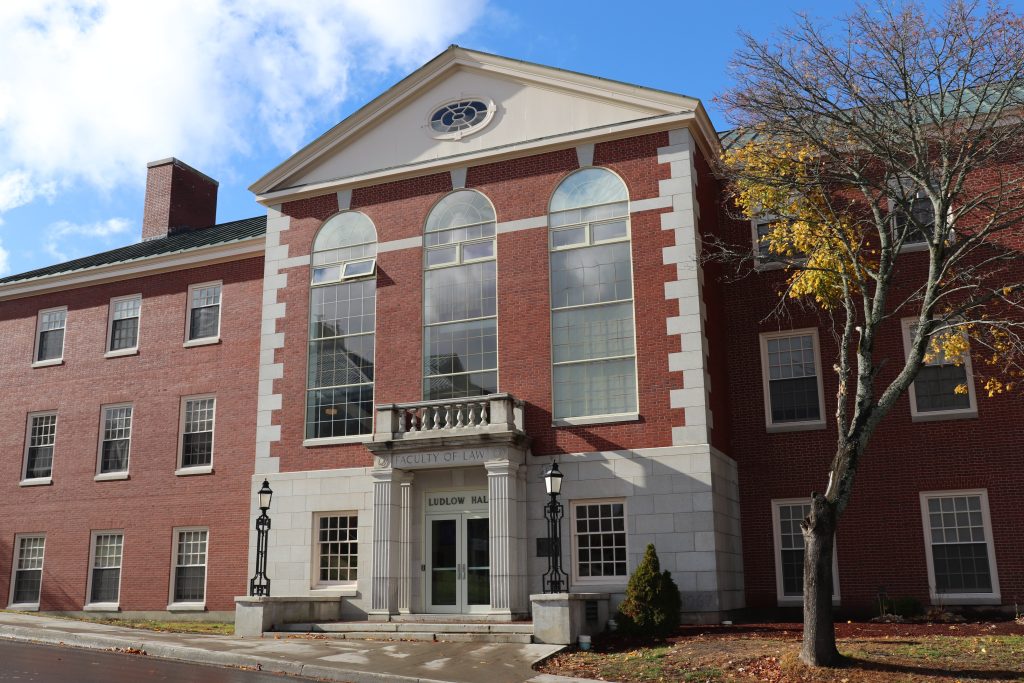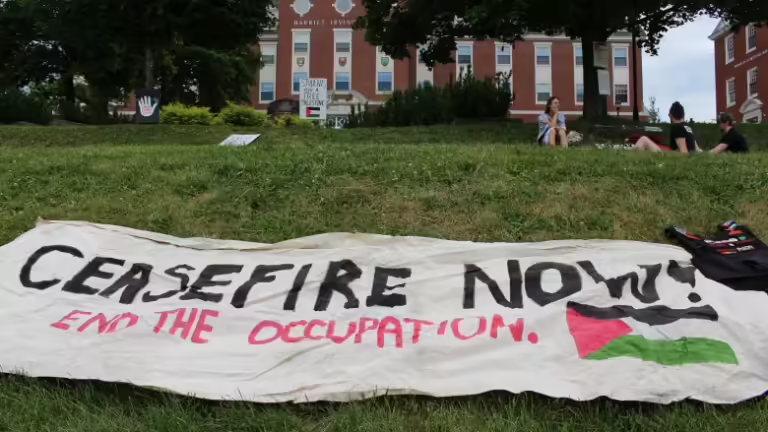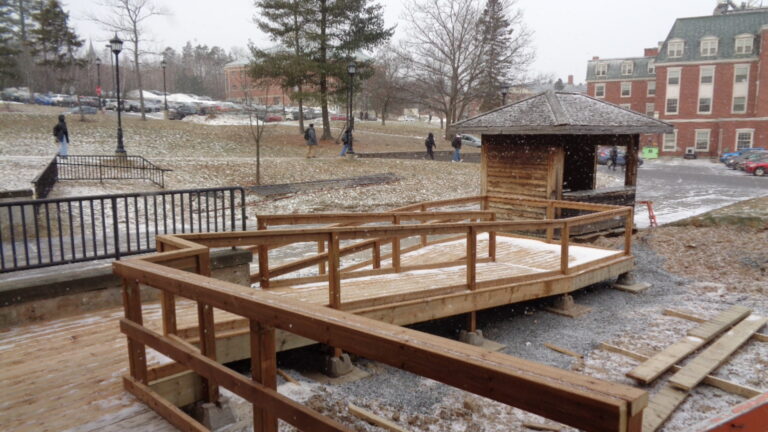Long held contention around the naming of the UNB Law Faculty Building has recently come to a head with a number of student groups calling for the removal of the name Ludlow from its walls.
The building, constructed in 1968, was named after George Duncan Ludlow for his services as New Brunswick’s first Chief Justice. Controversy around the name choice predates the building itself.
“For the past 50 years various individuals and groups have asked UNB to change the name. For half a century the name has been condemned,” said Karen McGill, a UNB Law graduate who is Red River Metis and a citizen of the Metis Nation with membership in the Manitoba Metis Federation.
Dr. Nicole O’Byrne, UNB professor and legal historian, spent this summer researching Ludlow, travelling to the Library and Archives Canada in Ottawa, where she found record of Ludlow’s involvement with the Sussex Vale Indian Day School and his family’s history of slave ownership.
Ludlow was on the board of the Sussex Vale Indian Day School, which he later left because of what he felt was the schools’ poor retention of children—who fled in large numbers—and inadequate assimilation practices.
The controversy surrounding the naming of the building originally arose in 1968, specifically surrounding Ludlow’s history of slave ownership.
By 1800, the majority of the other judges in the British Empire were trying to find ways against upholding the legalities of slavery. Ludlow, however, was one of the last to hold it legal.
Ludlow’s father was a slave trader, and his brother, who was the first mayor of Saint John, owned slaves. While O’Byrne has been unable to find a document directly tying Ludlow to ownership of a specific slave, she says she would be shocked if he had not.
“He grew up in a family where their wealth and family fortune was based on this,” she said. “All the judges [Ludlow] sat with owned slaves, his brother, all the loyalists of that time period owned slaves. That was the normal thing to do.”
Decisive action is being taken by the student body after listening to the concerns of the BIPOC (Black and Indigenous People of Colour) students. McGill cites the decision of last year’s law school yearbook editor to not include the name as an example.
“This practical support along with the LSS and UNBSU resolutions calling for name change send another kind of message—UNB students support diversity, inclusion, and believe all students are welcome,” she said.

“I do not want to erase George Ludlow from history, I want to highlight his participation in the early Residential School System and his ruling on slavery. Blacking out his name is both a way to get his name off the paper and to get people thinking about why he was removed.” said Stephen Wolff Power, Co-Editor In Chief of The De Jure.
Jonathan Adams, a UNB Law student, wrote a piece for the De Jure that expresses his opinion as a Canadian of black ancestry. He believes the name might be a deterrent for diverse students in coming to UNB Law.
Adams says due to the lack of diversity both within the Atlantic provinces and the legal field as a whole, the law faculty is “particularly racially homogeneous.”
“Slapping a new name on the building isn’t going to change that, but what it will do is announce to prospective students what type of institution we aspire to be; that’s inclusive and socially conscious,” he said.
Right now pressure is being put on the administration by the Law Students Society, the UNBSU, and other related parties to take the name down.
“There’s been some pushback and I don’t think there’s anybody in the administration who actually thinks it should be kept up,” said Chris Lutes, Law Faculty rep for the Student Union.
The president has been served a resolution by the LSS, which calls for the immediate removal of the name.
While unavailable for comment, Paul Mazerolle, UNB’s president and vice-chancellor, supplied the Brunswickan a statement concerning the action being taken by the university.
“I am establishing a working group to explore the university’s naming conventions and examine the due diligence used in determining a name for a building. The bi-campus working group will explore the naming of buildings issue generally and will recommend the next steps for addressing the naming of Ludlow Hall. Issues such as receiving submissions or undertaking consultation will be considered by the working group,” read the statement.
Lutes questions this statement, calling it vague and ambiguous.
“[Mazerolle] did not give any sort of scope to the working group, no real mandate, there is no timeline. It seems to me that this is a delaying tactic on the part of the administration, that they just assume ‘wait the students’ who are agitating for this; wait them out.”

An example of action that has been taken, however, is the removal of Ludlow’s portrait from the law building.
“The intention is not to erase history, but to ensure that our students feel comfortable and respected in the spaces where they study and learn. Any decision on the portrait’s future location and any accompanying display or literature will be addressed as the cross-campus working group explores the naming of the building, ” said Mazarolle in a statement concerning the portrait.
“I am not surprised. Our faculty is very responsive to truthful, fact-based argument, and the removal of the portrait ought to signal to the larger UNB administration the seriousness with which they take this issue,” said Molly Murphy, president of the UNB LSS, in response to the portrait’s removal.
“While we are happy that the University has responded, taking the most broad general approach carries the potential to lose focus quite quickly and slow to a halt. This is a teachable moment. We are not advocating for a hasty, thoughtless reaction, but we are most certainly seeking action,” says Murphy.




